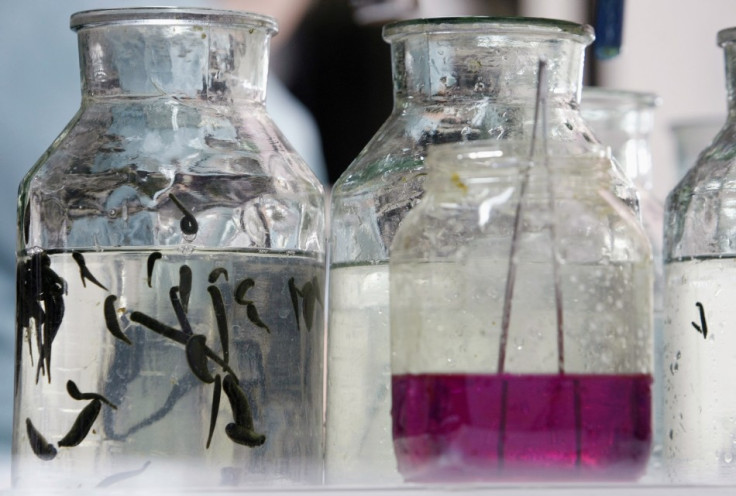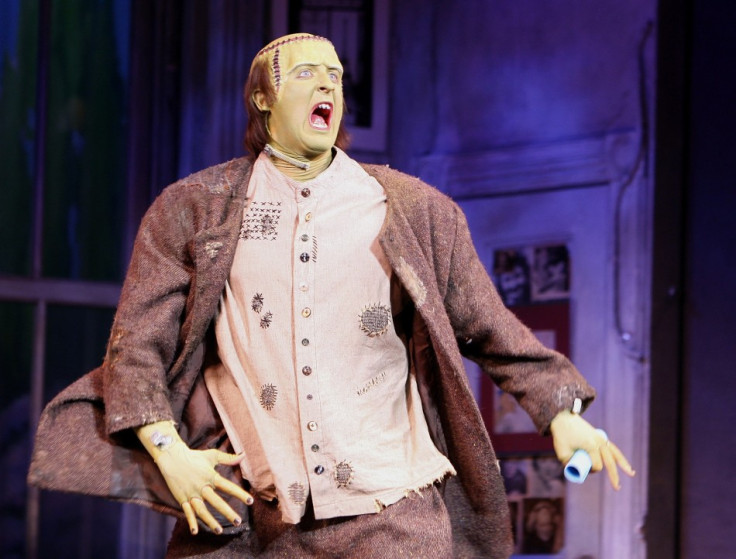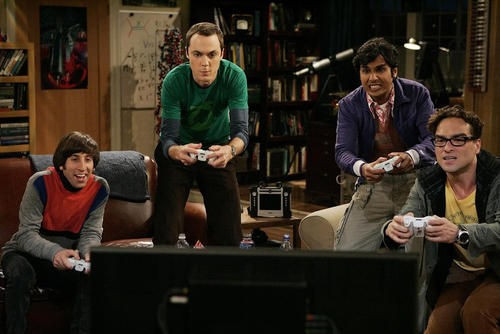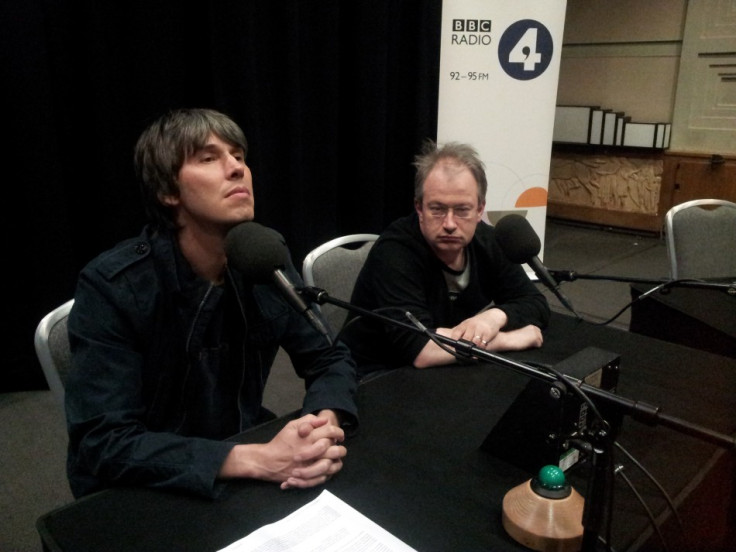Trials and Tribulations of Demystifying 'The Scientist' [BLOG]

The third of British science fiction writer Arthur C. Clarke's "laws" states that "any sufficiently advanced technology is indistinguishable from magic." However, like the Wizard of Oz, if you pull back the curtain these scientific "wizards" are often a lot more normal than you would think.
As a scientist myself I often ponder on the role that science has to play in today's society, and principally how it is portrayed in popular culture. This is particularly the case right now as I'm currently "between jobs" after finishing my PhD.
In fact, a couple of weeks ago I was at the Job Centre and checked their listings under the "Professional" and "Science/Research" search conditions. Aside from a handful of job adverts for "Truck driver", there were around 100 listings from all sides of the whole spectrum of scientific research. This was, consequently, not very helpful for someone like myself - who has specialised beyond looking for employment in simply "Science/Research".
This is not a snide, sniping, sneering (or any other sn- word) point on the work of the Job Centre.
On the contrary, I feel they do the best they can, actually. Instead, it is a wider point that to a huge amount of people, science is science.
And thus, a scientist knows, and does, ALL THE SCIENCE.
This is a shame, and not because I would like a slightly easier time at the Job Centre. Not even because I would like to stop having awkward conversations at parties:
"You're a scientist?"
"Yeah, I work on a tropical disease"
"Cool. So, Science Man, what is this Higgs boson I keep hearing about?"
*Sigh*
Time to Demistify Science
The real reason I would prefer a wider recognition that "scientist" is as useful and nuanced a term as "businessperson," is because I feel that it is time to demystify science. It is a subject that everyone should get involved with and be interested in, rather than shying away and leaving it to the "eggheads".
This is essential as scientific research and technology is rapidly moving ahead (as it should), and if the public attitude of fear mixed with apathy is left unchecked it could create an insurmountable gap between public opinion and scientific realities.
Two common responses to this premise are: "would this be such a problem?" And "hasn't it already happened?"
Fair questions, however I believe both downplay the problems that would occur if, across the board, researchers were shunned while at the same time regarded as all-knowing priests who are the only ones that can understand the teachings of the mystical tech gods.
We have already seen people die of treatable diseases in some countries because of distrust and ignorance surrounding modern medicine, that has resulted in governments being allowed to drop conventional drugs and replacing them with water and vitamin tablets.
Equally, however, I don't think that we've got to the point of no return at all. I think there are a few simple things that can be done that can easily engage people with the scientific community.
I think an extremely important first step to this is that scientists of whatever discipline are no longer regarded in popular culture (be it films, books, video games or TV programmes) as faceless members of one of three main "scientist" archetypes. The first is probably the oldest negative science stereotype: that of a researcher with the hubris to "play god", of an amoral genius, of "Dr Frankenstein". This is probably the most damaging of the three categories, as it puts a "them vs. us" twist on the relationship the public has with scientific research.
Obviously historically there have been researchers that cared more about their ego than their ethics. However, this represents a tiny minority who are invariably called out, argued with, and shamed by the rest of the scientific community. Unfortunately, this portrayal of the Mad Scientist ends up becoming, to an extent, a self-fulfilling prophecy in the media. I say this not as it creates more Dr Jekyll analogues, but rather as the more that the public retreat from discussion and involvement with the scientific community due to this stereotype, it becomes increasingly difficult to explain research without a knee-jerk "Dr Frankenstein" response in the press.

The second archetype in popular culture is the super nerd, or "Dr Dork"; incredibly hopeless in social situations, bordering on rude and certainly unapproachable.
This is probably the most common representation currently, and the one that I am personally most confronted with as people stare in stunned silence when I reveal that I'm a research scientist and yet not anything like Sheldon from The Big Bang Theory. And that is not to say that I'm not nerdy - quite the contrary, in fact.
But even though I perform research and know the name of the little guy that sits on Jabba the Hut's shoulder in "Return of the Jedi" (it's salacious Crumb by the way), it shouldn't be such a surprise that I'm not completely socially inept at parties. Well, actually it is pretty socially inept when I mention to people that I know the name of the little guy that sits on Jabba the Hut's shoulder in "Return of the Jedi" at parties.
In fairness though, if you going to ask me about the Higgs boson, Star Wars talk is all you're going to get in return.
Scientists Aren't Semi-Autistic Dorks
The image of scientists endorsed by The Big Bang Theory as awkward, semi-autistic geeks sets up a barrier between researchers and everyone else, which really should not be there.
Of course there are "Dr Dorks" in science and engineering, but frankly there are people like that everywhere, regardless of profession.
So a preconception like that shouldn't stop you from hearing what a biologist, physicist, chemist, mathematician etc. may have to say. It may interest you, and they can probably explain at least a part of their research to you without breaking out the jargon and PowerPoint© slides.

The final stereotype seems to be gaining popularity at the moment, and it is the scruffy geek chic, lovable but basically ineffectual, "Dr Adorable".
This is the next step of the "Dr Dork", where an air of aversion towards the scientist changes into an attitude of puzzled condescension. I have heard people talk of researchers such as Prof Brian Cox, for example, as "that physics guy that was on QI; smart, but don't really understand what he talks about, not that it matters to me". This attitude does a disservice to the work done by these people, but equally dehumanises them, again putting up an obstruction between science and the public. Additionally it reinforces the point that scientific research is completely removed from normal day-to-day life, which it is not.

By listening to what people like Prof. Cox, Lord Robert Winston, Prof. Michio Kaku, Dr Ben Goldacre, etc. have to say, and embracing science for what it is, it becomes straightforward to see why science, in all its forms, is important and relevant. It is the realisation that research is not just important for an end product, but also simply for the process of scientific analysis and deliberation. Without this appreciation of the scientific method, it becomes ever easier for egotistical charlatans to peddle their pseudo-scientific wares to the ignorant. This is very dangerous.
Happily though, I do believe that attitudes are improving in some areas. The popular characterisation of scientists as Dr Frankenstein now seems to have been superseded by the Dr Dork image, and this in turn seems to be transitioning to Dr Adorable.
I see this as a positive trend, which will hopefully continue with greater exposure of science subjects in the media, such as TV's Science Club and School of Hard Sums, and The Infinite Monkey Cage on the radio, and with organisations such as Sense About Science.
I hope this trend will continue and that in the future, scientists will be viewed as they should be: simply hard working people in an employment that requires rigorous, peer-reviewed discussion. Not wizards, and certainly not practitioners of black magic.
I also hope that, at parties, I'm asked less about the Higg's boson and more about Leishmania or video games.
Andrew Voak is a research scientist who has finished his PhD in the studies of a parasite that causes the human (non-zombie) disease leishmaniasis, from Queen Mary, University of London.
© Copyright IBTimes 2025. All rights reserved.





















